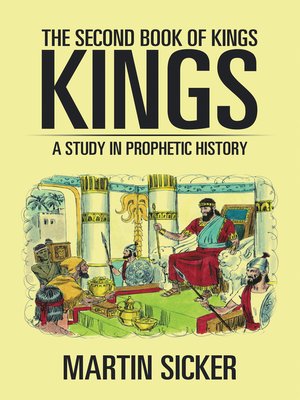
Sign up to save your library
With an OverDrive account, you can save your favorite libraries for at-a-glance information about availability. Find out more about OverDrive accounts.
Find this title in Libby, the library reading app by OverDrive.



Search for a digital library with this title
Title found at these libraries:
| Library Name | Distance |
|---|---|
| Loading... |
The subject of this study is the continuing story of the transition of the ancient Israelites from a loose confederation of ethnically related tribes into a territorially based nation and state and its subsequent transition to a monarchy, as depicted in the biblical books of Samuel. The work that follows begins with the succession of Ahaziah, the son of Ahab, to the throne of the kingdom of Israel and concludes with the end of the kingdom of Judah and the destruction of the Temple in Jerusalem in 586. The term prophetic history is employed to describe the subject because prophecy in biblical thought is not fatalistic and does not predict future events. What it does is assert that the moral course a society chooses to follow in the present can determine its probable but not inevitable future. The purpose of the biblical book is to inform the reader of the historical consequences of the failure to observe the terms of the divine covenant entered into between God and the children of Israel at Mount Sinai, following the exodus from Egypt. Although the narrative is based on events that were believed to have taken place, the primary focus of prophetic history is on the moral implications of the decisions taken by men rather than the factual accuracy of the details of the events described, which have been studied exhaustively by archaeologists and historians of the ancient world.







